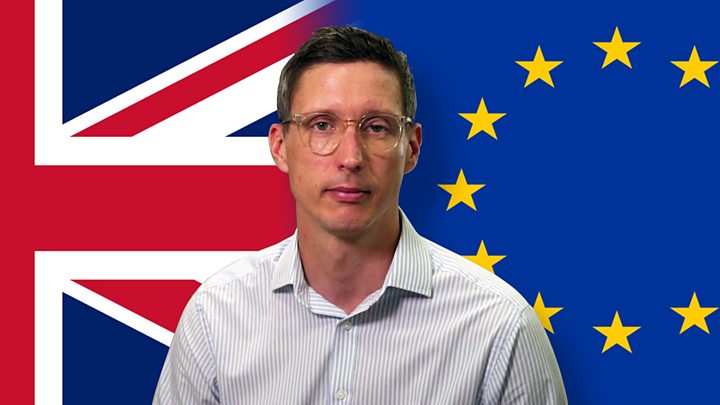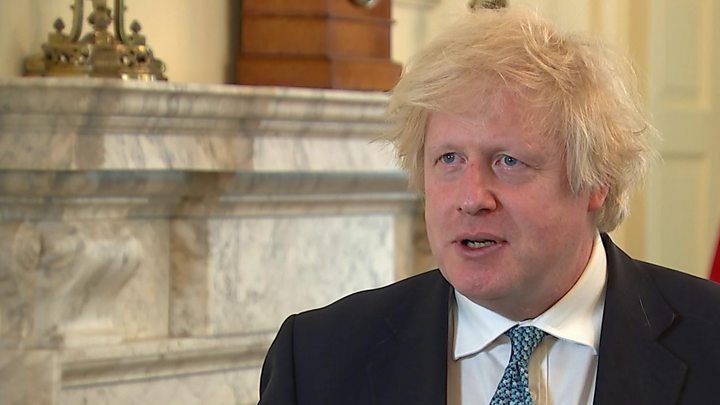
Media playback is unsupported on your device
Face-to-face negotiations on a post-Brexit trade deal between the UK and the EU have begun in Brussels, after the teams pledged to "intensify" talks.
It will be the first time the UK's chief negotiator, David Frost, and his EU counterpart, Michel Barnier, have met in person since talks began in March, due to the coronavirus outbreak.
Negotiations have continued through the pandemic, but took place virtually.
Boris Johnson has said a deal could be reached this month with "new momentum".
The PM met EU Commission President Ursula von der Leyen virtually earlier this month and said there was a "very good" chance of getting a trade deal by December.
A No 10 spokesman also said on Monday the talks "can't go into the Autumn", and they need "make progress as soon as possible".
This latest round of talks will go on all week, with Mr Frost and Mr Barnier expected to meet on Friday.
Mr Johnson has refused to extend the transition period - where the UK continues to follow some EU rules while a trade deal is negotiated - past the end of 2020 if an agreement has not been reached.
Cabinet Minister Michael Gove formally confirmed to the bloc two weeks ago that there would be no extension, tweeting: "On 1 January 2021, we will take back control and regain our political and economic independence."
Both sides have accepted a deal would need to be in place by October to be ratified by the end of the year.
If not, the UK would go on to trade with the bloc on World Trade Organisation rules - which critics say could damage the economy.

Media playback is unsupported on your device
After the last round of talks in early June, Mr Barnier said there had been "no significant areas of progress" on issues between the two sides - a sentiment echoed by Mr Frost.
Sticking points between the two sides include the so-called "level-playing field" - to ensure businesses on one side don't have an unfair advantage over their competitors on the other - fishing rules and the border between Ireland and Northern Ireland.
Ahead of the latest round of talks, Mr Frost said the EU's "unrealistic positions" would need to change if there was to be any progress.
Speaking as the talks began, European Commission spokesman Daniel Ferrie said: "Our overall message this week, but also for the coming weeks and coming months, is to intensify our negotiations in order to make progress in order to get a deal."
Despite the rhetoric about racing for a summer deal, an autumn timeline may be more comfortable for Boris Johnson.
He might feel full freedom to manoeuvre, considering his 80-seat parliamentary majority.
But compromises may be easier for the PM to make in the autumn, with the clock ticking down to a potential no-deal - which much of UK industry and many MPs would oppose.
One thing for London to remember though - an EU divided over concessions would not be something to celebrate.
Every EU country and the European parliament will need to give the nod to a future relations agreement. Or there will be no deal at all.
The meeting comes after the announcement Mr Frost will become the UK's national security adviser when cabinet secretary Sir Mark Sedwill steps down in September.
Mr Frost will continue to lead on the negotiations for the UK though, saying the talks will "remain my top single priority until those negotiations have concluded, one way or another".
Mr Ferrie said he had "no particular comments to make" about the appointment, but added: "From our side at least we are fully concentrated on the negotiations."

 5 years ago
767
5 years ago
767 

